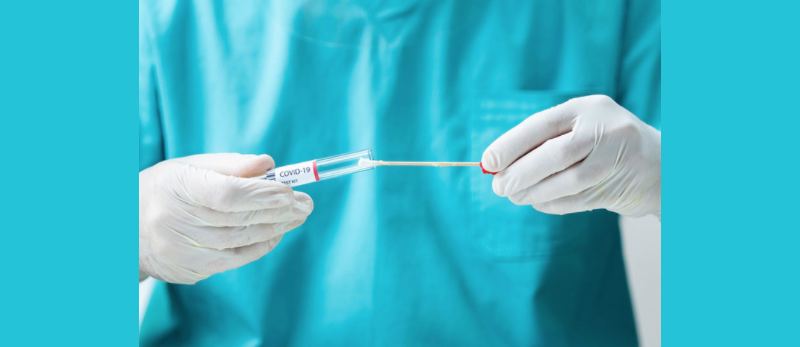||| FROM STATE DEPARTMENT OF HEALTH |||
OLYMPIA – Starting today, The Washington State Department of Health will include antigen-positive COVID-19 cases in the COVID-19 Data Dashboard and the COVID-19 Risk Assessment Dashboard. Since September 30, antigen-positive testing data have been included in a separate weekly report because at the time, we were not able to roll these results into the main dashboards for reporting. With this inclusion, reporting antigen-positive test results will provide a more accurate picture of community transmission and help guide efforts to respond to COVID-19.
Adding antigen positive results will change statewide case numbers, but will not change testing data. The dashboard will reflect all positive antigen cases reported since June, when the first antigen tests were reported. These results will appear on the current status, epidemiologic curve, cumulative counts, and demographics data on the DOH dashboard and in the statewide and county case rates on the risk assessment dashboard. Testing data on the dashboards, however, will continue to reflect only results from molecular tests.
While the test results tabs on the DOH and Risk Assessment dashboards are useful tools for understanding how communities are being impacted by the virus, it’s also important to track the epidemiological curve graphs to understand disease activity across the state.
Antigen testing represents a small percentage of all COVID-19 testing in Washington, but DOH expects to see increases in the use of antigen tests over the coming months. Currently, about 5% of all COVID-19 cases are from antigen testing, and the remaining 95% is from molecular testing (including PCR testing).
About Antigen and Molecular COVID-19 Testing
Antigen tests detect certain proteins that are part of the COVID-19 virus. Detection of these proteins is used to diagnose a person as “COVID-19 positive.” Results for antigen tests usually take about 15 minutes, and many of the tests can be performed outside of a laboratory. Antigen tests are primarily recommended for patients who have COVID-19 symptoms. Individuals with a positive antigen test are reported as “probable cases” on the dashboards.
A molecular test looks for genetic material inside the virus to diagnose a person as “COVID-19 positive”. Molecular tests, which include PCR tests, take more time than antigen tests to perform, but they are generally more accurate than antigen tests. Individuals with a positive molecular test are reported as “confirmed cases” on the dashboards.
Regardless of testing methodology, the high number of COVID-19 cases being reported now, along with sharply increased COVID-19 related hospitalizations and deaths, tell us that the strategies we’ve asked people to employ are more important now than ever. Avoid close contact with people outside of your household. Wear a mask whenever you are outside your home. Maintain at least six feet of distance from others. Practice good hand hygiene, and seek a test if you show symptoms or have been exposed to someone with COVID-19.
Learn more about antigen testing at doh.wa.gov/testing.
**If you are reading theOrcasonian for free, thank your fellow islanders. If you would like to support theOrcasonian CLICK HERE to set your modestly-priced, voluntary subscription. Otherwise, no worries; we’re happy to share with you.**








